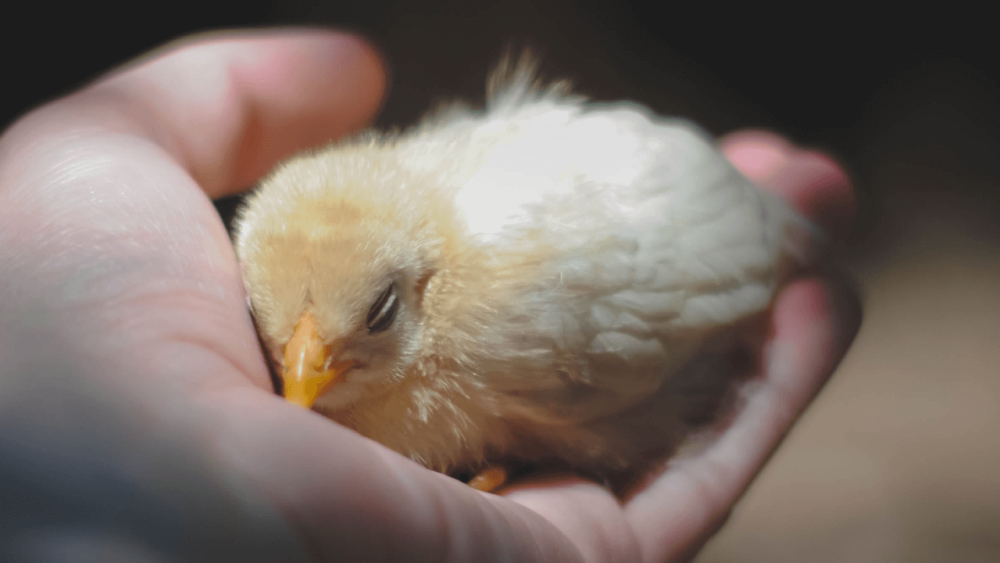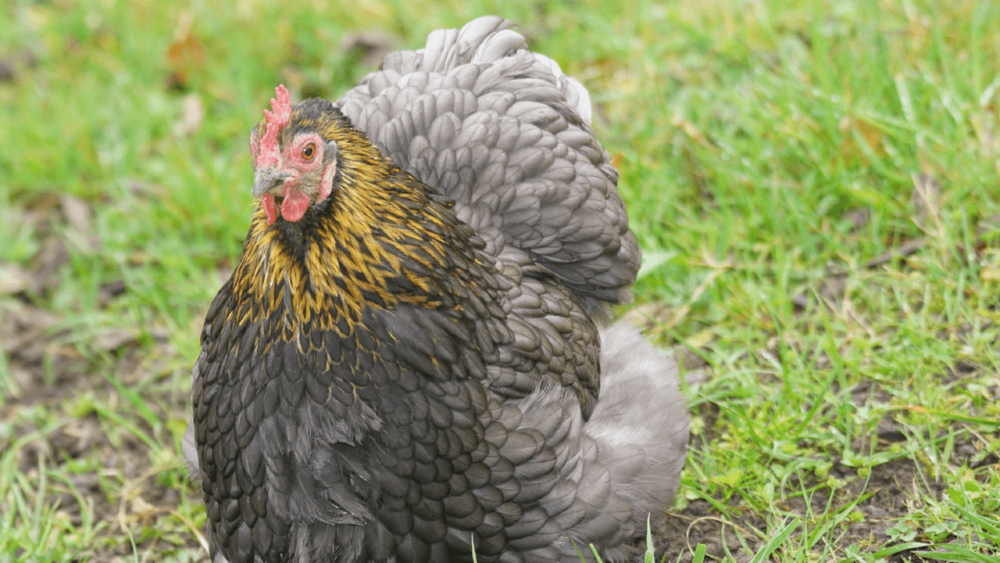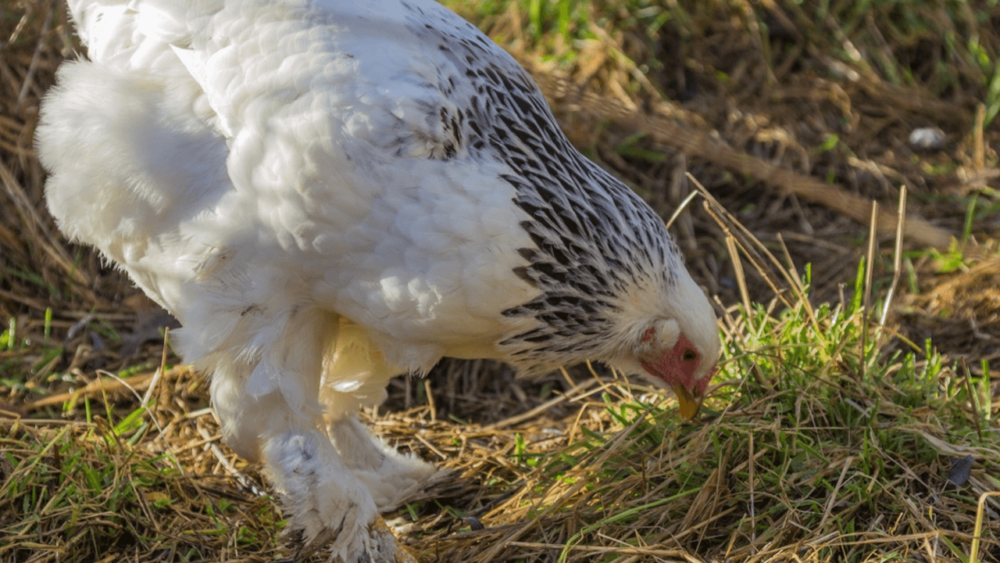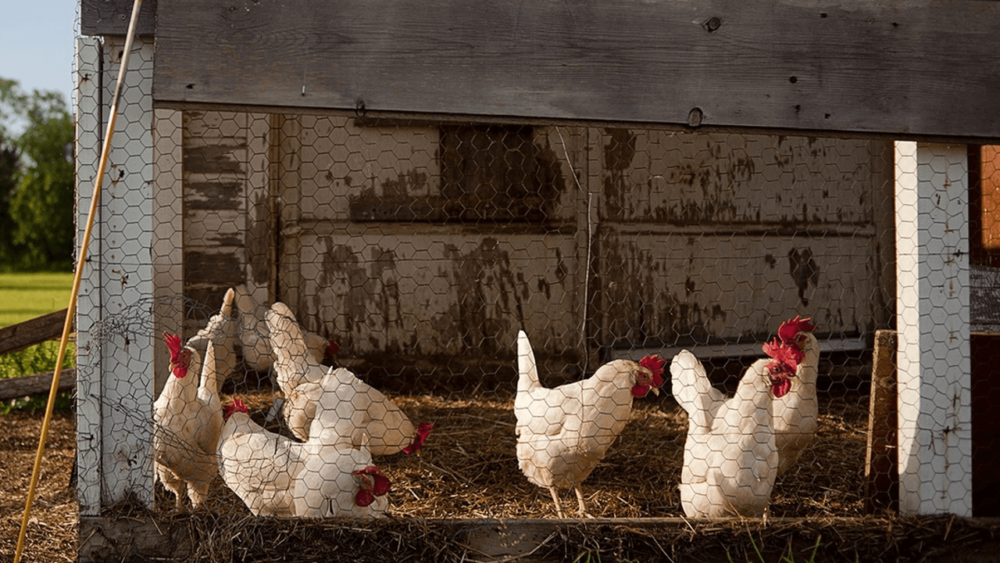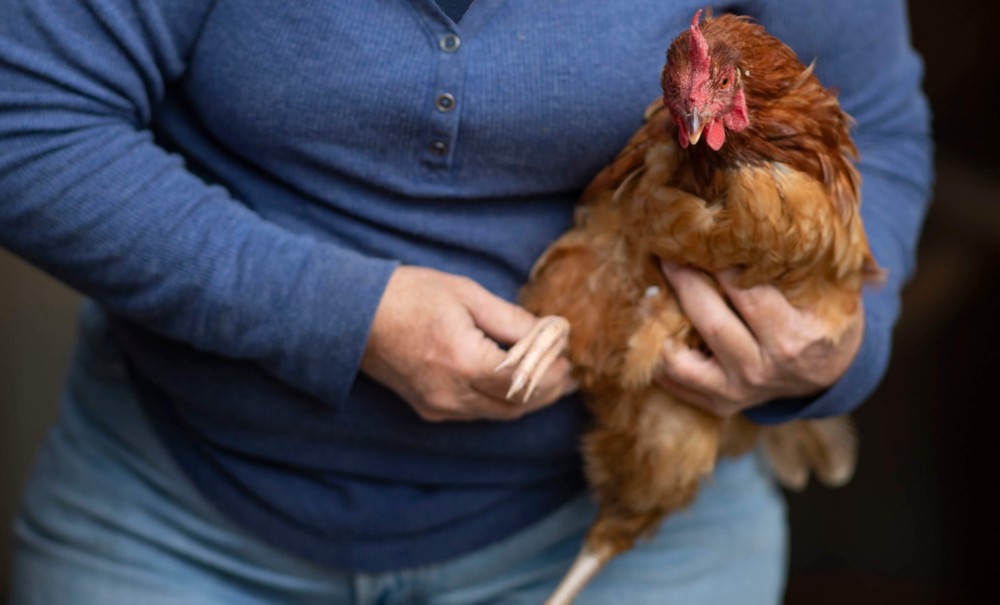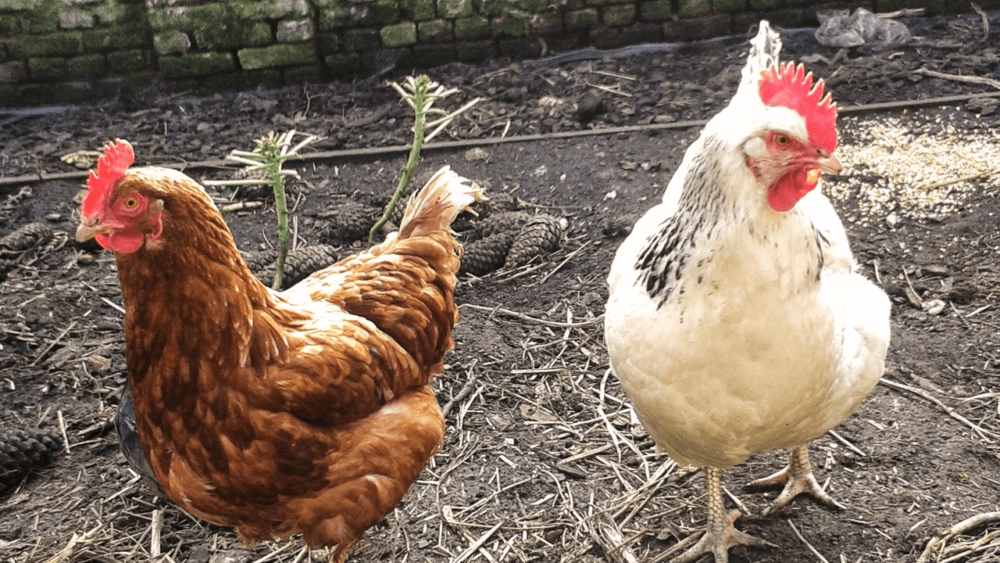Whether you are raising chickens as pets or as an income-generating sideline, having your chickens die is traumatic and potentially costly. Chickens (especially small or young ones) may die for no apparent reason. At least, that’s what it felt like when I started farming a few chickens on my smallholding.
I had done everything according to the handy chicken rearing book I had invested in, yet my chickens were suddenly dying. Questions filled my mind as I buried yet another young hen that I had found dead that morning: Was I feeding incorrectly? Was it the weather? Had they contracted a disease? Was I just not meant to farm with fowl?
Concerned, I phoned a local chicken farmer.
Why is my chicken dying? Chickens die for many reasons, including cold, incorrect feeding, a deficient diet, or disease. A high parasite burden can overwhelm their bodies such as worms, ticks, fleas, and mites. Lastly, since chickens will peck at just about anything, they may also die when ingesting poisonous plants or insects.
You can know why your chickens are dying if you look carefully at the signs and symptoms before their death. This can also help you prevent more chicken deaths. Let’s get started.
How Do I Know If My Chicken is Dying?
One of the first things the chicken farmer told me was that knowing the signs that a chicken is really sick and possibly dying is essential. If you miss the early signs, your chances of taking action that could save the chicken’s life will be reduced.
Before you can know your chicken is dying, you need to know what is normal for your chicken. Study your healthy chickens. Notice how they sunbathe, dust bathe, and scratch in the dirt. Chickens are alert throughout the day, and even at night, they are still alert while snoozing and not lethargic.
A healthy chicken has a bright and flexible comb that flushes red when the chicken becomes agitated or has to defend their young. Chickens have healthy and glossy eyes that reflects the chicken’s curiosity about their environment. Your chicken should also have a full and fluffy body well covered with firm but fluffy feathers, unless your chicken is molting.
Also pay attention to the way in which your chicken moves. Notice limping chickens, address issues with their toes and if your chickens roam free, watch out for leg injuries from being stepped on my larger animals like horses or cows.
7 Signs of a Sick and Dying Chicken
- Lethargy
Chickens aren’t the most active animals, but they scratch around and constantly forage for seeds and bugs. When a chicken is listless and sitting in one spot, they aren’t feeling well. Should a chicken act listless and unmoving for an hour or more, it usually means they are so unwell. A sick chicken may also seek a quiet place to safely hide. Or they may choose to stay in their roosting boxes or hide in the chicken hutch. Sick hens will often stop producing eggs.
- Stops Eating or Drinking
When your chicken stops eating or drinking, it is usually a sign that they are near the end. Because of starvation and the lack of nutrients, they may further sicken and lose energy. Eventually, their body systems will start to shut down.
- Unusual Standing Pose
Chickens often start stiffening before they die. A near-death chicken may roach their back or walk very stiffly, struggling to balance even if there’s nothing wrong with their legs.
- Extended Neck and Wheezing
Since the chicken is ill, they may struggle with cramping and have difficulty breathing. In an attempt to still get air, the chicken may stretch their necks out, attempting to suck in air. The result is a wheezing sound, and it may look like the chicken is trying to regurgitate something.
- Dull Eyes and Tucked Head
If the chicken is unwell, their mucus membranes will be affected. There may be a loss of sheen to their eyes, and they may experience light sensitivity. As a result, the chicken may tuck their head under their wings, trying to protect their heads and eyes. This tucked position is different from a sleeping chicken, and you may notice weakness in the chicken’s posture.
- Excrement in Their Feathers
When chickens are ill, they often soil themselves. Runny tummies and excessive urination may be seen as matted feathers and dirty plumage. A chicken with a soiled bottom is sick, and if you notice soiled feathers all over the chicken, it could indicate the bird had been thrashing about or convulsing.
- Discolored Comb
A chicken’s comb is a good indicator of their health. If their comb suddenly turns purple or blue, it indicates a circulation problem that could be affecting your chicken’s heart, lungs, or liver.
Reasons Chickens Die:
Now you know what to look for to spot a sick or dying chicken, it’s time to discover what the different signs mean and what the reasons for your chicken dying are. You’ll want to identify if it’s ill, injured, or dehydrated.
Pests and Parasites Kill Chickens
Several pests can also cause chickens to die. Ticks, fleas, mites, and flies can exsanguinate chickens, draining them of blood and causing anemia. You need to inspect your flock thoroughly when you notice lethargic chickens with blue or pale combs.
Some of these pests are so small that they may not be visible to the naked eye. Inspecting your chicken may require the assistance of a helper to pull out a few feathers and check feather shafts, and separate layers of skin around the comb to check for mites and ticks.
Predator-Caused Deaths
Many predators hunt and eat chickens. Foxes, wolves, and domestic cats are just some predators that hunt chickens. While these predators may catch and kill a chicken, they can also injure, maim, and frighten your flock.
The result of unsuccessful attempts to predate your chickens can leave your birds with injuries that can fester and lead to sepsis and the eventual death of the chicken.
Water-Related Chicken Deaths
Water causes many chicken deaths. A lack of sufficient, clean water can cause chicken deaths. In the summer, chickens quickly get dehydrated and can go from healthy to dead in a matter of hours. In the winter, insufficient water prevents a chicken from maintaining enough body heat to stay warm. This can cause frostbite and infection. In severe cold, hens can freeze to death in one night.
Contaminated water can cause a chicken to become ill. Chickens should always have a sufficient supply of clean water.
Another related topic is how water affects chickens in the elements. Rain and snow can chill a chicken that doesn’t have adequate shelter. Additionally, chickens can drown in puddles of water.
Egg Bound Hens
Some hens may become confused by their first time laying eggs. They may refuse to leave the eggs, sitting on the eggs non-stop, which can lead to the hen becoming egg bound sickening and dehydrating. She may die of thirst before she dies of hunger, and finding the hen has died on her eggs is not uncommon.
Impacted Crop
Chickens will peck at anything that is in their coop or run. Sometimes chickens will find non-food or unhealthy substances that may cause inflammation or lead to their crop’s impaction. Since the chicken can’t pass the food down their digestive tract, this can effectively starve the chicken. Impacted crop also occurs when a chicken is overfed. Feeding unhealthy kitchen scraps can easily cause impacted crop, so avoid feeding processed foods like bread, potato, and sugary foods that can lead to bacterial infection and fermentation in the crop. Young chicks are especially susceptible to impacted crop, but older chickens may also suffer this if they eat long stemmed grasses or foreign objects that may cause blockage.
Heart Attack
When breeding chickens for meat production, the ratio of feeding versus space is vital as this creates healthy chickens that have space to move and improve their circulatory systems. Pet chickens that roam freely will rarely suffer heart attacks, but broiler chickens often suffer this when their body weight compromises their heart health.
Poisoning
When chickens peck at harmful substances such as fertilizer, pesticides, and deworming medications that are meant for other animals, they may suffer poisoning. If a chicken looks ill or uncoordinated or refuses to eat, be sure to check their coop or run for signs of poison or toxic plants like hemlock, potato shoots, and buckthorn. If you suspect poisoning, reach out to Poison Control in the U.S.
Salmonella
You probably know salmonella poisoning is dangerous bacterial contamination of food that leads to food poisoning and can cause humans severe illness. But did you know that chickens can also contract salmonella? It is naturally found in chickens. But, while an adult chicken can recover from salmonella, their eggs and hatchlings are more vulnerable.
Salmonella is mostly found in the chicken’s feces, which becomes oxidized into the air. The dust settles on the eggs, infecting the eggs and any hatchlings in the chicken’s nest.
Signs of Salmonella:
- Lethargic, low energy
- Not eating
- Drinks more water
- Blue to purple combs
- Yellow or green diarrhea
- Swollen joints
- Swelling around eyes
Treating Salmonella: Vaccinate your chickens against salmonella bacteria, clean and sterilize their coop regularly, and test the eggs frequently for salmonella. Vets may prescribe antibacterial medication to help your chickens heal.
Coccidiosis
Another disease that gives your chickens the runs is coccidiosis, which is caused by single-celled organisms called protozoa. A foreign contaminant does not cause this disease as these organisms naturally occur in the soil and environment.
Signs of Coccidiosis:
- Diarrhea may be bloody
- Exhausted chickens, lethargy
A stool sample test by your vet can confirm coccidiosis. When chickens get diarrhea, they become drained and exhausted; if left untreated, they may die.
Treating Coccidiosis: Feed chicks medicated starter feed that contains amprolium. This will prevent infection with the protozoa that cause coccidiosis. Alternatively, if you are farming organically, you can vaccinate the chicks by injecting them with an attenuated dose of the protozoa or parasites. The chickens will then develop an immune response and form antibodies.
Avian Influenza (aka “Bird Flu”)
Sudden and unexplained deaths among your flock could indicate bird flu. This disease is not common among backyard chickens, but you can test for it by taking swabs of the bird’s mouth.
Bird flu is a terrifying disease that makes chicken farmers anxious. Not only can people contract the virus from eating contaminated chickens, but it can decimate your flock as destroying infected birds is often the only way to stop the spread of this highly contagious virus.
Signs of Bird Flu:
- Nasal discharge
- Swollen heads
- Fatigue, lethargy
- Refusal to eat
- May have a purple comb (Indicates a loss of red blood cells)
Treating Bird Flu: While some states require that when your chickens have tested positive for avian flu, the entire flock must be culled, your chickens can potentially be supported with appropriate antiviral medication.
Fowl Cholera
Bird diarrhea is a common disease that is caused by bacterial infections of the gut. Cholera is also easily transmitted to humans, so take care if you notice your chickens are becoming lethargic and have runny feces.
Signs of Fowl Cholera:
- Similar signs to Avian Influenza
- Coughing
- Nasal discharge (snotty nose)
- Diarrhea
Treating Fowl Cholera: Administering a tetracycline injection into the muscle of the chicken’s thigh while also dosing the chickens’ drinking water with tetracycline will reduce the effects of fowl cholera. There are also vaccines available to help protect your chickens from contracting this disease.
Marek’s Disease
It is terrible to see when your chickens have contracted Marek’s disease. The chickens will suffer excruciating stiffness, and in time, they will die. This is another disease that farmers may deal with by destroying the entire flock, as it is not guaranteed that adult healthy chickens will survive.
Signs of Marek’s Disease:
- Stiff joints
- Seizures
- Death occurs within 6-12 weeks
Treating Marek’s Disease: Marek’s becomes untreatable once clinical signs appear. Vaccinate chickens prone to Marek’s. Once you have found Marek’s among your flock, it is best to move them to an entirely new coop and burn the old one, as it will be contaminated for years.
How to Prevent Your Chicken From Dying
The best way to prevent your chicken from dying is to ensure they don’t meet an untimely death.
- Provide a Safe Coop and Chicken Run: Predators are the main cause of death among healthy chickens
- Always provide clean water: Dehydration in winter and summer quickly kills hens. (Cold-weather chicken care)
- Vaccinate all your birds (chickens, ducks, turkeys, fowl): Guide to chicken vaccines.
- Good Husbandry: Keep the coop and run clean, picked up, and provide basic care as part of good chicken husbandry.
- Diatomaceous Earth: Use in coops, nesting boxes, and dirt baths to reduce pest populations
- Apple Cider Vinegar: Add 1-2 TBS per gallon of water to help chickens’ immune systems deal with pests better
- Deworm chickens: A multi spectrum dewormer such as Safe Guard with fenbendazole.
- Inspect Hens Daily: Check for injuries, bullying, or nutritional deficiencies. Notice if certain hens are laying poor quality eggs or have stopped laying altogether.
- Take Immediate Action if You Notice a Lethargic, Ill, or Injured Chicken: Isolate chicken in a temporary hospital.
- Isolate hen
- Place chicken in an area with good temperature control and protection from the elements. A shed or garage can usually work for this.
- Provide Apple Cider Vinegar in water. Probiotics (yogurt) and electrolytes (Gateraid) can also be provided to help boost immune support.
- Keep noisy kids and animals away.
- Treat any injuries: See broken leg, sick chicken, acting weird for specific examples.
Taking a Chicken to the Vet
If you need to take your chicken to the vet, follow these steps:
- Catch Calmly: Calmly catch your chicken. Don’t chase it. Elevating their heart rate can cause disease to spread faster. Instead, use food to get closer so you can catch them. While it may sound brutish, press the chicken down onto the ground and then scoop them up or grab them by a solid handful of tail feathers and secure them. Despite being ill, your chicken will still have no trouble evading you if you’re not experienced at catching chickens.
- Calm Your Chicken: The chicken, especially if they are wild, will feel panicked, so it’s important to speak to them in soothing tones. Hold them securely. If the chicken is a mature rooster, be wary of their spurs as they can kick and cause serious injuries.
- Burrito Roll the Chicken: If your chicken is wild, it can help to wrap them with an old towel. Fold their wings in, and with the help of an assistant, roll them snugly (but not tightly) in a towel.
- Secure the Chicken for Transport: Place the chicken in a transport cage or box so they will feel calm and supported while in your vehicle (especially if your farm road is like mine and bumpy as hell).
- Safety First: While your concern maybe with your chicken, you should also practice good hygiene for yourself and any family members who have held or touched the chicken (or been in the chicken coop). Wash your hands properly before driving and again after handling the chicken. Using a hand sanitizer can help if you can’t wash your hands at the vets.
Don’t carry the chicken close to your face, and avoid touching your face when you have handled the chicken as some chicken diseases like Salmonella may transmit to people.
What to Do With A Terminal and Dying Chicken
I often get calls from those who buy some of my show chickens (I breed Cochins with the adorable slipper feet) when they have a chicken that’s dying. Their main concern is what to do. No pet chicken owner wants to consider the old-fashioned (break the neck) method of ending the chicken’s pain. But what do you do?
There are two options: Euthanize or allow the chicken to pass naturally.
Euthanizing is a humane and painless way to ease a chicken that’s in tremendous pain. I would strongly recommend this option for a chicken injured or suffering from Marek’s disease. The chicken’s pain can be excruciating and can go on for hours (sometimes days). It’s best to end the chicken’s suffering swiftly. My family have always opted for cervical dislocation (aka breaking the chicken’s neck) as it is swift and death is almost instantaneous.
Chickens that have been ill and are dying from exhaustion or simply from a disease running its course can pass more painlessly. However, you can still take steps to comfort them and ensure they don’t suffer.
Allowing a Chicken to Pass Naturally:
Chickens that have been ill and are dying from exhaustion or simply from a disease running its course can pass more painlessly. However, you can still take steps to comfort them and ensure they don’t suffer.
- Separate the Chicken: Most ill animals don’t like to die in their herd or flock. They consciously isolate themselves. This may be instinct so they don’t spread disease. Or maybe they worry about being picked on by the members of their flock. Help your chicken by removing them from the flock and placing them in a warm, snug box. Ensure there are enough slots for good ventilation if you need to close the lid.
- Make Your Chicken Comfortable: Wrap your chicken or place them on some towels to ensure they can remain warm and are supported. You can add some hay around them to keep them calm and help them feel safe. You can also wipe your chicken with baby wipes when they have foam or feces that stains their feathers from their disease. Don’t move your chicken around, though.
- Keep It Quiet: Your chicken is in enough pain and dealing with their body shutting down. They don’t need loud noises around them that could scare them and make them try to flee. If you have young children, be sure they don’t crowd the chicken or make noises around the chicken. This is a good learning school for your children about self-control and showing respect to any animal that passes.
- Provide Water but Not Food: Your chicken may wish to drink, and you can help them with a dropper with some lukewarm water. Don’t try to force the chicken to eat, as they will likely choke.
How to Deal With Dead Chickens
If you find a dead chicken in the coop, it’s essential to dispose of its remains correctly. If you live within city limits, it is important not to simply toss the chicken’s corpse in the garbage, as this is not a sanitary way to dispose of remains that may be infected with a disease.
Be sure your other animals or the local wildlife don’t get to eat or chew on the carcass.
You should dig a sufficiently deep hole to bury the chicken on a smallholding. However, be sure this hole is nowhere near the local water supply. I like to add several scoops of agricultural lime over the carcass to help speed up the decomposition process.
Alternatively, you can burn the carcass, which is a safe way to eliminate any possible contaminants, and there’s no risk of some animal digging up the chicken.
Managing the Surviving Chickens
Do chickens grieve? There are instances when chickens bond closely and grieve when one of them dies. This usually happens with pet chickens, and you may indeed find your surviving chicken grieving.
They may refuse to eat for a day or two. If they don’t eat for longer, you should have them checked out by your local vet in case they have been affected by the same disease that killed the other chicken.
Hens that die when their peeps or young chicks still need them can create an entirely different problem. Sometimes another hen will foster the chicks, but most likely, the young chicks will suffer exposure to the elements and struggle to forage on their own.
It is important to take these chicks in hand, keep them warm, and isolate them in a breeding box or smaller cage that can protect and secure them. Provide chick meals that are appropriately sized, and feed regularly. Use a UV lamp to warm the chicks and ensure their survival.
Conclusion
Chickens are fantastic pets and great earners for those who farm for income. Caring for a sick chicken requires that you remain observant and pay attention to signs of illness.
When you are alert and monitor your flock daily, it is easier to spot the signs. You will then be able to take steps to save your chicken or comfort your dying chicken.
My Favorite Chicken and Duck Supplies
This list contains affiliate products. Affiliate products do not cost more but helps to support BestFarmAnimals and our goal to provide farm animal owners with accurate and helpful information.
Manna Pro Oyster Shell keeps eggs strong. Before I gave my chickens oyster shell, I had the oddest eggs, many with weak and irregular shells. Now, I don’t have an issue.
Layer Feed by Manna Pro. I like pellets rather than crumbles as my chickens eat them better and less gets wasted or scavenged by rodents. A good layer feed makes the difference in hens laying many more eggs.
My chickens love this mealworm treat, which gives added protein, something that’s great during molting and winter months.
There are many ways to feed and water your chickens. I like this food and water setup the best because it reduces waste, saves me time feeding and watering, and keeps the food fresh longer. Except, in the winter, I use a heated waterer. The only problem is the heated waterers need to be replaced every few years.
I love this chicken veggie hanger. It makes it easy to give your chickens produce from the garden and keep them occupied in the winter with a fresh head of lettuce.
These chicken toys are a hoot! They will help curb bullying and keep your chickens active, especially in the winter when hens tend to get more lethargic.

